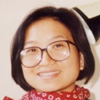Journal Entries
previous
next
Bon Journal
PhD: Piled higher and deeper
Doing a PhD wasn't something that I had grown up wanting to do. In fact, I was quite put off by it when I visited Rensselaer Polytechnic Institute in Troy, New York during my senior year in college. At the time I was contemplating going to graduate school. But the feeling I got from the doctorate students in engineering was bleak and despondent.
Years later, after my one year master's in London and two-and-a-half year stint in Singapore, I came back to London seeking a new career direction. While looking for a job in London and waiting to hear from my postgraduate applications, I started helping the friends I was staying with. They were running their own business, and each day I became more and more involved, applying the stuff I learned as a management consultant earlier. One way to stay in the country and be able to "work" was to get a student visa and work part-time. So I got into the PhD programme at London Business School instead of going to Carnegie Mellon, Stanford, or Erasmus. I thought I'd get two for the price of one (what business schools teach MBA's and also get a PhD for the lower cost of a PhD programme). How wrong I was!
Whereas the MBA was two years of structured course and team work, the PhD was anything but structured. It was a long dark tunnel of solitary confinement. It was very difficult getting used to the isolation and trying to stay awake reading the passive tense of academic writing.
About three years into the programme, I decided that I was almost done. But I was just beginning the journey. The first few years were course work and trying to figure out what I could do my research in. Doing a PhD, as it turned out, was about learning what a PhD was all about. And the longer I was doing it, the longer it was going to take me. There were horror stories of people who quit before reaching the finish line. If you quit or fail anytime before you actually get the PhD, you would have gotten nothing except that you had done the course work. You have nothing to show for the endless hours of solitary research until you get the PhD itself!
Oh, I could write a book about what it was like doing a PhD! So many people have asked me for advice. I always ask them to really think it through before even applying!
Why do you want a PhD? I rationalised that it was an employment insurance for life. At least I could teach. I'll have it in case I need it one day. "Dr Ku" would disguise whether I'm single or married. The extra letters after my name "Anne Ku, PhD" would lengthen my name. I wanted to show that I was just as good as my friends who got it.
What I didn't know was that a PhD, just like any other qualification, is only as good as it is kept up-to-date or being used. In the years, months, and weeks before the final end, I used to sign myself "Dr Ku" on scrap paper and dream about being introduced as "Dr Anne Ku." But as soon as I got the damn title, I dropped it. One day the mail clerk came up to me and waved a letter enthusiastically. "You're a doctor! I didn't know you're a doctor!" And of course it comes in very handy when I'm travelling or waiting to see my banker.
Having said all that, I do notice a lot of people, having succeeded in their careers, feel that they deserve a PhD. They think that they should be able to go back to school and get one easily. What they don't realise is that the older you get, the more commitments/responsibilities you have, and the less you are able to devote 100% to it. The pursuit of a doctorate degree is a very selfish indulgence. It's you with and against yourself.
Fewer and fewer people will understand what you are doing the longer and deeper you get into it. Towards the end, I became paranoid that somebody else might have also chosen and pursued my research in parallel. Although I passed my oral exams, my examiners had only grilled me on the theory part of my subject. The examination of the practical part arose when I went interviewing for a job in the energy industry.
3 January 2002 Thursday
My doctorate thesis was about uncertainty. There were two ways to go about it: model more comprehensively or make use of flexibility.

in my cozy two bedroom rented manstion flat in West Hampstead: the calm
before the storm

the day I got my PhD
The flexibility book I am going to write ---
